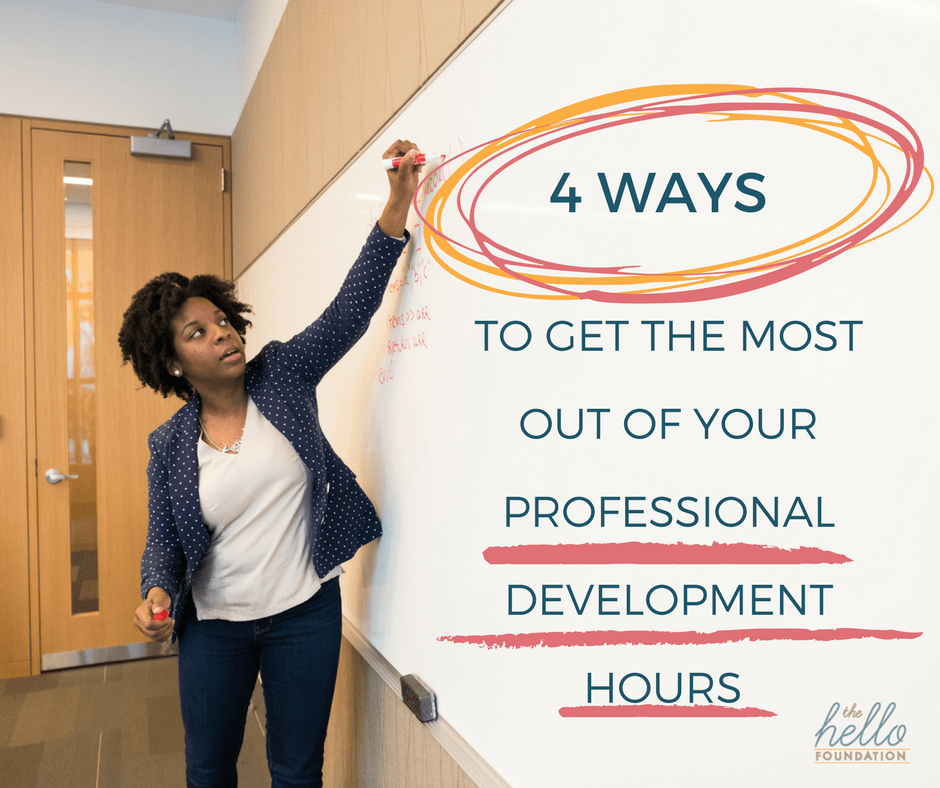Profesional development has its challenges. Imagine this scene . . .
November 2017, Los Angeles, California. The sun shone down on the city through a thin smog, and throngs of SLPs made their way to their mecca at the Convention Center.
ASHA.
15,000 attendees, 2,500 sessions to choose from. Amazing, and kind of overwhelming.
I love going to ASHA. This was my 6th time attending their annual convention, and the energy is palpable. It’s an amazing way to gather with “my people;” in fact, I would say that SLPs have a look. When I was in Orlando for ASHA 2014 I walked into to the wrong part of the convention center – there were thousands of attendees, but it was so QUIET. Murmuring voices, polite nods – I knew I was in the wrong place (looking at badges, I realized I was at a rheumatoid arthritis convention). I went around the building to the other entrance, and immediately heard friendly voices, people engaging with others they just met, and a general feeling of “Let’s get this done!” in an organized and confident fashion. I was home.
I had some FOMO (fear of missing out) that there was an awesome session going on somewhere, but I didn’t know which one it was. Also, content was difficult to predict from the title alone: some sessions were more theoretical, and some were so specific that I doubt I’ll ever be able to apply the information to my practice. And yet, some hit home perfectly, giving me the new ideas and information I was looking for.
 image courtesy of www.wocintechchat.com
image courtesy of www.wocintechchat.com
The same can be said of any professional development or continuing education class you’re considering. There is a constant stream of offers landing your inbox, Facebook feed, and snailmailbox and it can be a challenge to sift through it all in the midst of your already hectic work life. How can you be sure that you’re spending your time (and money!) wisely? Here are some strategies to help you make the most of your PD, no matter where it comes from.
1. Focus on the meat of your practice. Think about what you do for 80% of your workday – middle school language groups? stuttering? supervising SLPAs? working with high needs students? Attend sessions focused on that area, hone in, and gather as much information as you can. Write down 2 takeaways for yourself after each session – this is what you will remember down the road.
2. Find the engaging presenters. I’ve started to keep a mental list of the speakers that are not only experts in their field, but also really good at keeping attendees engaged. Make notes of good presenters that you’ve seen in the past, and pay attention when others talk about a great session. These are the ones to see when you want to attend a session that is not the core of your caseload. A few years ago I went to a cleft palate session by Ann Kummer – she was a great speaker! I’ve only had two students with cleft palate, but now I have resources I can turn to for my treatment plans.
3. Develop your weakness. Okay, I’m really bad at eliciting /r/. I’ve tried all the tricks and they just don’t work for me. What’s your secret weakness? Get your PD in that area and you’ll feel more confident with a new bag of tools to try.
4. Go digital. The cloud is your friend! How many of you have handouts from 2012 sitting in a folder somewhere, gathering dust? And then you think – “Hey, I went to a class on fluency a few years back, where the heck did I put those conference notes?” If you haven’t already, start a cloud-based filing system, such as Drive, Dropbox, or Evernote. Take photos of your handouts and slides and store them electronically. I have a Google Doc titled ASHA 2017 that I’ve already referred to a handful of times to help me remember and find information. And it’s super easy to find, no matter when I am.
So go forth, fellow specialists, on your quest for professional development. I hope these strategies are helpful! What strategies do you use when figuring out which PD events to attend?





